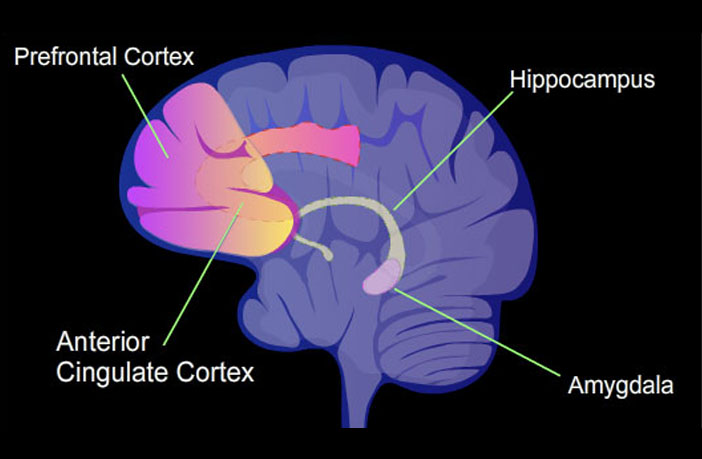Clinically depressed adolescents have decreased functional connectivity between several brain regions involved in emotion processing, but increased connectivity between brain regions known to be involved in rumination, according to a new study in Psychiatry Research: Neuroimaging.
Category Archives: depression
Common drugs used to treat depression, epilepsy and incontinence ‘could increase the risk of DEMENTIA by almost half because they damage crucial brain cells’
A common type of prescription medicine has been linked to an almost 50 per cent higher chance of getting dementia.
Decades Of Research About Depression Could Be Wrong
The idea of a “depression gene” has captured the imaginations of some scientists for decades. Over the past 20 years, literally hundreds of studies have hinted that people with a variation of just a few select genes are at a significantly greater risk of depression.
Like Genes, Our Microbes Pass from Parent to Child

High antidepressant use could lead to UK public health disaster
Antidepressants are meant to make things better. But the increasing reliance on them in the UK could be a public health disaster in the making, campaigners are warning. Evidence is growing that people struggle to stop taking antidepressants once they have started, and that the drugs could even prolong symptoms of low mood and trigger other mental health problems.
Is everything you think you know about depression wrong?
In the 1970s, a truth was accidentally discovered about depression – one that was quickly swept aside, because its implications were too inconvenient, and too explosive. American psychiatrists had produced a book that would lay out, in detail, all the symptoms of different mental illnesses, so they could be identified and treated in the same way across the United States. It was called the Diagnostic and Statistical Manual. In the latest edition, they laid out nine symptoms that a patient has to show to be diagnosed with depression – like, for example, decreased interest in pleasure or persistent low mood. For a doctor to conclude you were depressed, you had to show five of these symptoms over several weeks.
Tarleton Study Finds Magnesium is Effective and Safe Treatment for Depression
Depression presents an enormous disease burden, with a reported 350 million people worldwide suffering from the disease, but traditional SSRI treatments carry a burden of their own – in dollars and side effects. New clinical research published today in PLoS One shows that over-the-counter magnesium appears safe and effective to treat mild to moderate depression.

